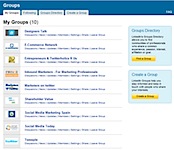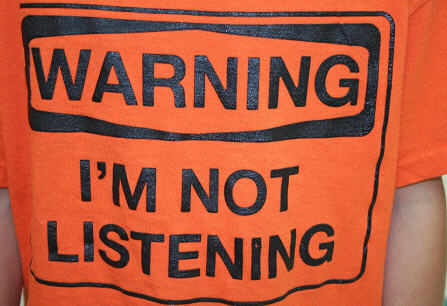For some of us, “All I Ever Really Needed to Know I Learned in Kindergarten” still rings true. Play nice, share with others, don’t interrupt, work hard; the list goes on.
For me, a lot of the advice I call upon in my adult life revolves around what my parents taught me. I use their advice in parenting, how I treat my loved ones - both family and friends - and everything in between. Much of their advice I even apply to my career as a PR executive. In honor of Mother’s Day, I wanted to share my thoughts, and those of my teammates, on how Mom’s early lessons stick with us and still help us in our careers today.
 When I was young, I struggled with math. Words always came much easier to me. As the daughter of two parents who worked for a national newspaper, you could say it was in the blood. How could I get through this math monkey on my back and change my perspective? My mother taught me that we all have to do things we don’t want to do. We all have to tackle the hard things. Part of life is this yin and yang of easy and hard. So with the assistance of kind teachers, patient parents, and most importantly a change in me, I switched my thinking and began to use the mantra, “I will not give up.” I heeded my mother’s tough advice. She didn’t have a ton of sympathy, but rather told me over and over, “Keep at it, be tough, and do not give up.”
When I was young, I struggled with math. Words always came much easier to me. As the daughter of two parents who worked for a national newspaper, you could say it was in the blood. How could I get through this math monkey on my back and change my perspective? My mother taught me that we all have to do things we don’t want to do. We all have to tackle the hard things. Part of life is this yin and yang of easy and hard. So with the assistance of kind teachers, patient parents, and most importantly a change in me, I switched my thinking and began to use the mantra, “I will not give up.” I heeded my mother’s tough advice. She didn’t have a ton of sympathy, but rather told me over and over, “Keep at it, be tough, and do not give up.”
I am no longer tackling Pi or the Pythagorean Theorem, or cringing after being called up to write on the blackboard in math class - but each day as a PR professional, I am still faced with challenges that call for mental toughness and confidence. This is when the parts of my job that are harder and grittier than others call for my mom’s good old “don’t give up” mantra. This mantra makes for happy clients, solid journalistic relationships and a constant quest for me to deliver top results while striving to do better.
My PerkettPR colleagues shared what they’ve learned from their mothers as well. Here’s a collection of the awesome advice that they still carry with them in their PR careers.
From Christine Perkett
My mother taught me not to undervalue myself - which comes in handy when negotiating as both employer and vendor. My grandmother taught me that men are like street cars — a new one will always come along. I say the same is true clients - not that I don’t appreciate the ones we have (I so do!), but that they come and go and that losing one is not the end of the world.
From Susan Sweenie:
My mom taught me that even when dealing with someone tough or not interested, just kill them with kindness.
From Crystal Monahan:
I’ve had the privilege of having two moms in my life – my actual mom and my stepmother. Although different in innumerable ways, they both share one admirable trait that I have tried to emulate in my life and career. They both possess a remarkable work ethic. They work dawn to dusk if necessary. They have held multiple jobs to provide for their families. Nothing is beneath them – if it needs to get done, they do it. They both understand that nothing in life comes free and great pride comes from a job well done.
I’ve always tried to do my best and work my hardest, and have always appreciated the sense of accomplishment at seeing the results of my efforts whether it’s completing monthly status reports on time, writing a solid press release, or seeing my clients in the media.
Whenever I’m feeling lazy, I think about my two moms and I know they’ve probably already accomplished more in a day than many people do in a week, and I’m inspired to get back to work.
From Susie Dougherty:
“Mind your manners…” Something my mom was a stickler about, much to my benefit. I think most of us (well, maybe not as many as I’d like to think) grow up to be mindful of the simple words and gestures that help make us respected adults. But with today’s email and social media - suddenly a lot of those manners have gone out the window. Thanks to my mom for somehow making those words stick -even as the Internet has fundamentally changed in so many ways how we communicate. I’m still using my manners behind my laptop or iPhone or tablet screen - and I know that stands out to clients, reporters and even my own colleagues.”
From Jennifer Hellickson:
My mom’s a big proponent of the Golden Rule – treat others as you’d like to be treated – and this goes a long way in PR. Going that extra mile for both our clients and our colleagues in the media means trying to not only think from their perspective, but also anticipate their needs, as well. This creates a better working environment for everyone and ultimately allows us, as PR professionals, to better serve the company’s mission.
From Heather Bliss :
Mom taught me so many amazing lessons, but one of the most valuable was to be a good listener and problem solver. She has an uncanny ability to be able to listen to ANYONE, and I mean anyone. Whether it’s a family member, friend, colleague or a stranger on the park bench next to her — if they have a problem my mom has the time and patience to listen and to try and help solve it. I learned how to translate some small part of this gift of hers to my work in PR to really listen to clients and understand the issues they face and try to problem solve solutions as my mother would with quickness and calm.
And, fellow PerkettPR staff member (and new mom herself) agrees:
Johanna Lucia adds:
My Mom always taught me the importance of being a good listener. She helped instill this very powerful life skill in me, and when it comes to PR- we need to hear our clients. Listening to our clients’ wants and needs is a vital part of our role and in helping develop effective PR strategies.
What inspirational mom lessons can you share with us? Do you have a favorite piece of advice learned in childhood that still remains a part of your work habit today? Please share your stories in the comments.

 At the risk of stereotyping myself, and my peers, it seems to me that most PR personalities are talkers, spinners and strategists, but rarely are they quiet listeners or observers. This observation is based on my own experience in PR over the last decade or so. I also speak from that rare position of listener.
At the risk of stereotyping myself, and my peers, it seems to me that most PR personalities are talkers, spinners and strategists, but rarely are they quiet listeners or observers. This observation is based on my own experience in PR over the last decade or so. I also speak from that rare position of listener.
